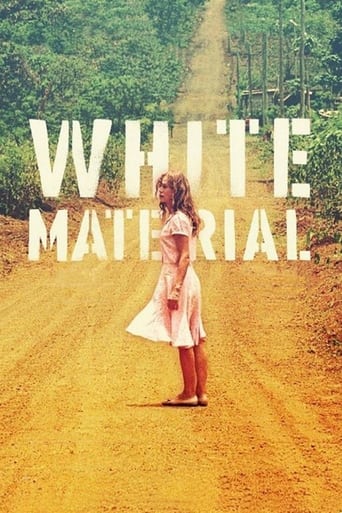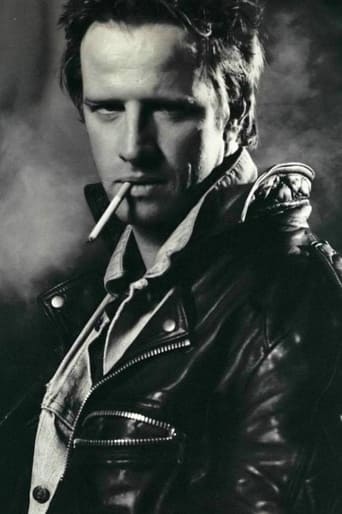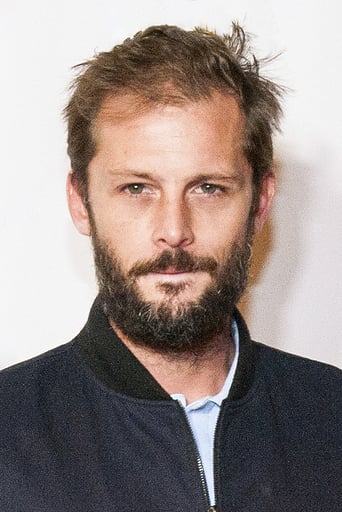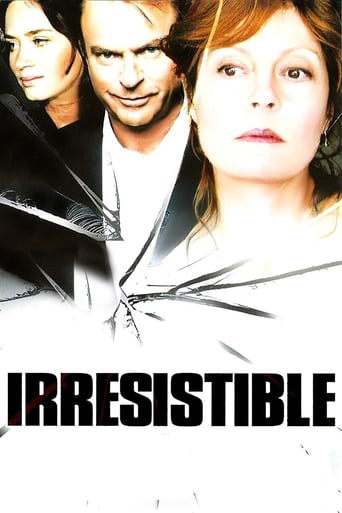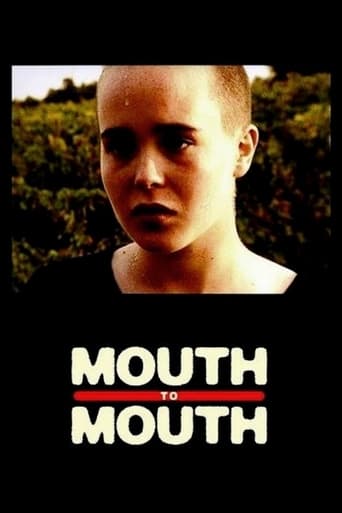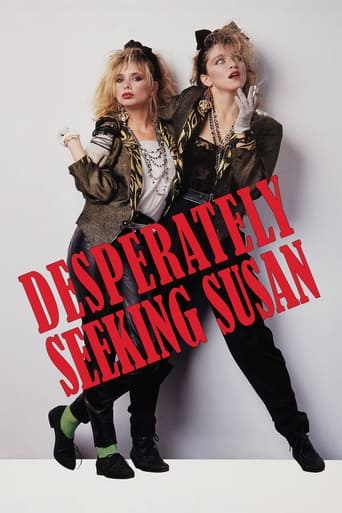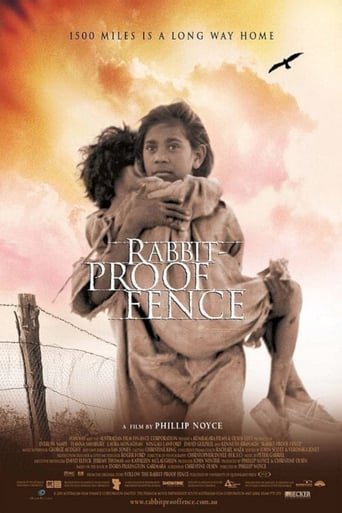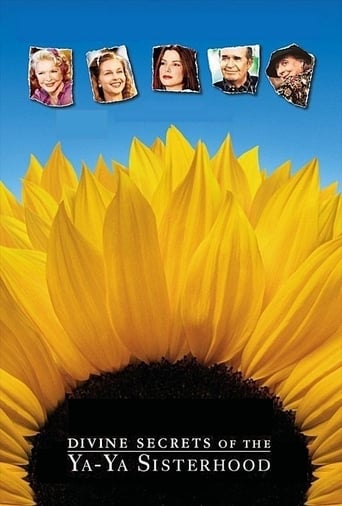White Material (2010)
On the brink of civil war breaking out in an African country, a French woman struggles to save her floundering coffee plantation.
Watch Trailer
Cast


Similar titles
Reviews
That was an excellent one.
Simply A Masterpiece
Best movie ever!
It’s not bad or unwatchable but despite the amplitude of the spectacle, the end result is underwhelming.
In our daily lives, we use the word "identification" for variety of things that concern social and environmental factors. However, we really do not know what the identification means. Identification is a complicated progress that person never has a full control over this psychological situation. In Lacanian terms, identification can be considered as an instance of comprehension (Lacan J., Gallagher C., 2002). Any external factor can captivate the people to make it become their self-component. "White Material" is a must-see example for the identification issues with questioning colonization.Although of her French origin, Maria considers herself as an African person. She has left France and never desires to return. She herself disdains the white French people with saying "These dirty whites... They don't deserve this beautiful land.". It can be obviously seen that she does not perceive herself as a French, while the rebels and the army call her as one such "dirty white" who is responsible for the country's filthiness. Although all threats, Maria does not retreat her actions for the coffee plantation. When she decides to travel for finding new workers, she even does not want to take the rifle with her. She believes that no harm might occur because of her appeal, identifying herself as an African makes her think in that way. As events spread, it is more clear to everyone around Maria that the situation is turning into less secure and more dangerous. It is important to see that what home means and how it feels to belong in a situation where others mark you an outsider. Manuel also suffers from being white. After two African boys mess with him and cut off his hair, he shaves himself and joins the rebels. We can see that, there is an obvious identity confusion for Manuel who lives for many years in this land as a white people. His depression is a sign of vulnerability for his belongings. Joining rebels can be interpreted as his reaction to again himself and his family to unravel confusion about his identity.As we learn that the coffee plantation is established and owned by Maria's father. His wish is maintaining plantation by his family especially by his daughter, Maria. Plantation has been operated with African workers for years and it seems like a colonial symbol throughout the history. Since the first European colonies on African continent, plantations have been a major slavery places for the African black people. They are purchase by the plantation owners and they can be traded or sold as goods (Austin G., 2017). Although plantations are not operated in that way now, they offer still bad facilities for the African people. They are pushed to work in unacceptable conditions in different types of plantations. Because of that, Maria thinks her father as a root for dirtiness of white people and consequently colonization. In this manner, killing her own father reveals her anger and sorrow about the African people who are the slaves of the plantation. Hence, she wants to end this colonization by destroying the foundation of it. Like mentioned earlier, her father can be seen as a foundation. Feeling and identifying herself as an African sets up the idea of releasing her inner-self and showing where she belongs.
Isabelle Huppert plays Maria Vial, a white farmer living in an unnamed African country. With her ex husband, father and son, she leads a cloistered, privileged existence, overseeing her coffee plantations while talk of civil war warbles on the radios. As conflicts escalate, Maria's plantation workers abandon her, some fearing for their lives, others deciding to at last cast off the shackles of Colonialism. As African leaders and mobs converge on her plantation, Maria remains fixed, refusing to abandon the continent. To reveal more about the plot would be to dilute the horrors that unfold.Though director Claire Denis made better films with "35 Shots of Rum" and "The Intruder", "White Material" does well to balance the lingering afflictions of colonialism and French occupation with Africa's own betrayals of its independence. Nevertheless, the film suffers from a conventional, obvious narrative, the result of Denis' struggles to condense "Big Themes" down into some manageable, approachable structure. Like most of these films, "White Material" also treats Africa and Africans in a somewhat condescending manner.Incidentally, this current wave of French and African (though often also French co-financed) pro-Africana films ("Bamako", "White Material", "Munyurangabo" etc) echoes a similar wave during the early sixties. After and while the British Empire was being disbanded, British and Italian directors released numerous "anti-Empire", "anti-Colonial" films, one, "Guns at Batasi", strongly resembling Denis' work here.8/10 - Ranges from powerful to far too conventional. See "Le Grand Blanc De Lambarene". Worth one viewing.
WHITE MATERIAL – CATCH IT ( B- ) White material is complex and gritty no doubt about that. Kudos for choosing an unusual story about a French woman, who refuse to leave Africa during racial disputes. Nonetheless the story is fascinating but the movie is really slow and multifaceted. Somehow the director didn't try to educate the viewers, she just pick up the story and presented in a way that everything we our self have to assume. What if I am a lame person and don't know what happens in Africa time to time?? I think a movie should be a complete package. For example, during the Most Gritty & Important scene, when gangster kids enter Manuel's house and on hearing Manuel (Nicholas Duvauchelle) waking up they run off. Manuel then follows them in the jungle and then Manuel injure his foot and suddenly in a Snap we see African Gansta kids holding Manual's head and snatching his chain, cutting his hairs with machete, after that they leave him entirely naked in the fields. I didn't get the editing in the scene, at one second the kids were far away looking at him turning back home and in the next scene they were holding him down. (WHY we have to suppose they suddenly grape him). After that the drastic behavior of the Manuel is understandable to an extent but there have been many scenes where the Editing has been roughly done like that even in the Last Scene we see Maria (Isabelle Huppert) coming towards her house, then in Next Second she is on top of storage room and sees her Son's body Burned Alive and in next second she is Killing her father-in-law with machete because she believes he is the reason she has spend all her life in Africa (That's what I got from the ending, I really have to search more to get what does that meant). So, the whole movie moves with a very slow pace and then in important scenes it move like Flash speed. That was Annoying!! Isabelle Huppert was excellent though it requires smart thinking to appreciate her performance, because she is not the women we see and meet in our daily life. She is strong, stronger than Men actually. Nicholas Duvauchelle is Amazing; he is a French ALEX PETTYFER, smart, bold, sexy and super talented. Overall, watch it for some really smart moments and Isabelle Huppert & Nicholas Duvauchelle Brilliant performance.
excerpt, more at my location - In Claire Denis' White Material (shot in Cameroon), themes of colonialism and rebellion collide within the context of an unspecified African nation. The film is, at times, deeply disturbing and shocking, and marks Denis' filmmaking return to Africa (after previously studying themes of African colonialism in films such as her 1988 directorial debut Chocolat) whilst drawing on real-life experiences of growing up in the continent.White Material is a worthwhile and thought-provoking film, even if it does not quite reach the full sum of its parts. Isabelle Huppert is intriguingly complex and engaging in the central performance, with Nicholas Duvauchelle also shining in a difficult role as a young man descending into darkness.

